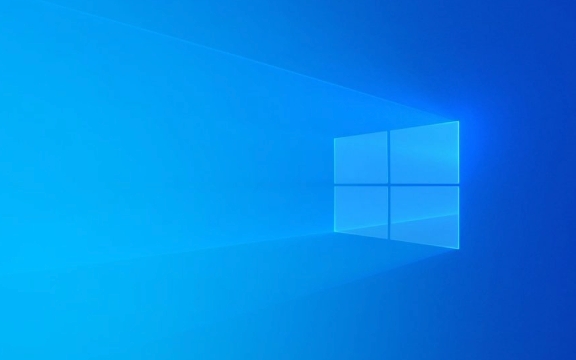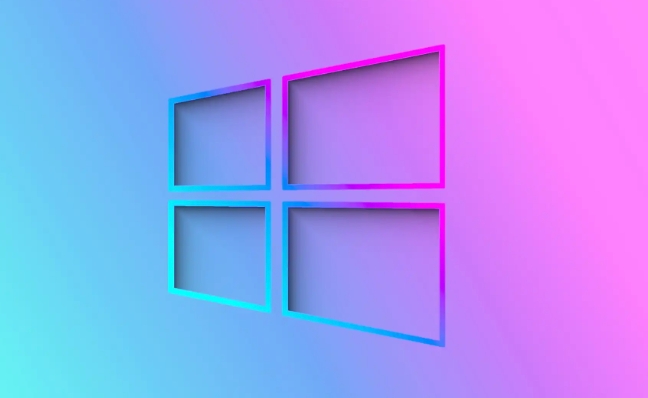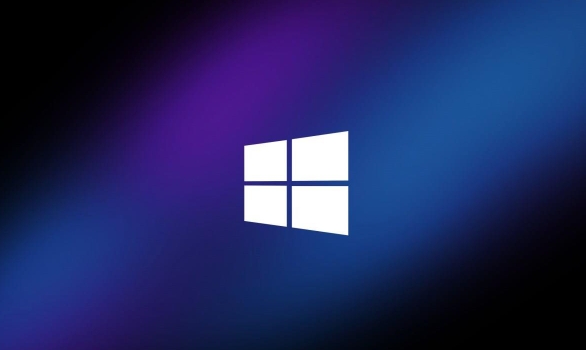Reduce startup programs: Disable high-impact non-essential startup items through Task Manager; 2. Enable quick boot: Turn on the quick boot function in the power options to shorten the boot time; 3. Update the system and drivers: Install Windows updates and optional updates, especially storage and chipset drivers; 4. Check storage health: Use commands or tools to detect the hard disk status, prioritize upgrading to SSD and maintain sufficient free space; 5. Run system maintenance tools: Perform disk cleaning, chkdsk, sfc /scannow, and DISM repair system files; 6. Adjust visual effects and services: Set performance options to best performance or disable non-essential services through MSConfig. The key to solving the slow startup of Windows 11 is to manage startup items, update the system, check the hardware status, and perform system maintenance, which can ultimately significantly improve the startup speed.

Windows 11 slow startup can be frustrating, especially when you're in a hurry. The good news is that there are several common causes — and just as many practical fixes. Here's how to speed up your Windows 11 startup process.

1. Reduce Startup Programs
One of the biggest culprits of slow boot times is too many apps launching at startup.
How to fix it:

- Press
Ctrl Shift Escto open Task Manager. - Go to the Startup tab.
- Sort by Startup impact — look for apps labeled "High" or "Medium."
- Right-click any unnecessary program (like Spotify, Discord, or Adobe Updater) and select Disable .
? Tip: Keep only essential apps like antivirus or driver utilities. Most apps (eg, browsers, chat tools) can be launched manually later.
2. Enable Fast Startup
Fast Startup is a Windows feature that combines shutdown and hibernation to make booting faster.

How to enable it:
- Press
Win R, typecontrol, and press Enter. - Go to Hardware and Sound > Power Options > Choose what the power buttons do .
- Click Change settings that are currently unavailable .
- Check the box for Turn on fast startup (recommended) .
- Click Save changes .
?? Note: Fast Startup may cause issues on some dual-boot systems or after driver updates. If you encounter problems, you can disable it later.
3. Update Windows and Drivers
Outdated system files or drivers — especially storage drivers — can significantly slow down startup.
What to do:
- Press
Win Ito open Settings . - Go to Windows Update and install any pending updates.
- Also check for optional updates (click Advanced options > Optional updates ) to update drivers.
Alternatively:
- Use Device Manager (
devmgmt.msc) to update your disk drives and chipset drivers under IDE ATA/ATAPI controllers and Storage controllers .
4. Check Your Storage Health
Slow startup is often a sign of storage issues — especially if you're still using an older hard drive (HDD) or a failing SSD.
What to do:
- Upgrade to SSD : If you're still on an HDD, upgrading to an SSD is the single most effective way to speed up boot time.
- Check disk health :
- Open Command Prompt as admin and run:
wmic diskdrive get status
It should return “OK” for all drives.
- Use tools like CrystalDiskInfo (free) to monitor SSD/HDD health.
- Open Command Prompt as admin and run:
Also:
- Make sure your drive isn't nearly full. Free up space — Windows needs breathing room to operate efficiently.
5. Run System Maintenance Tools
Windows has built-in tools that can fix underlying issues slowing down startup.
Recommended steps:
- Run Disk Cleanup :
- Search for “Disk Cleanup,” select your system drive, and clean temporary files, system files, and update backups.
- Check for disk errors :
- Open Command Prompt as admin and run:
chkdsk C: /f /r
(Replace
C:if your OS is on another drive.) You'll need to schedule it for the next restart.
- Open Command Prompt as admin and run:
- Run SFC and DISM :
- In Command Prompt (admin), run:
sfc /scannow
Then:
DISM /Online /Cleanup-Image /RestoreHealth
These fix corrupted system files that might be affecting performance.
- In Command Prompt (admin), run:
6. Adjust Visual Effects and Services (Optional)
If you're on older hardware, tweaking performance settings can help.
To optimize for performance:
- Press
Win S, type View advanced system settings , and open it. - Under the Advanced tab, click Settings in Performance.
- Choose Adjust for best performance , or manually disable animations like “Animate windows” or “Fade effects.”
You can also use MSConfig ( msconfig ) to disable non-essential services (but be cautious — don't disable unknown items).
Final Thoughts
Most slow startup issues in Windows 11 come down to startup apps, outdated drivers, or aging hardware. Tackle the basics first: disable unnecessary startup programs, enable Fast Startup, and ensure your system is updated. If the problem persists, check your drive health — and consider upgrading to an SSD if you haven't already.
It's not magic — just smart optimization. Basically that's it.
The above is the detailed content of How to fix Windows 11 slow startup. For more information, please follow other related articles on the PHP Chinese website!

Hot AI Tools

Undress AI Tool
Undress images for free

Undresser.AI Undress
AI-powered app for creating realistic nude photos

AI Clothes Remover
Online AI tool for removing clothes from photos.

Clothoff.io
AI clothes remover

Video Face Swap
Swap faces in any video effortlessly with our completely free AI face swap tool!

Hot Article

Hot Tools

Notepad++7.3.1
Easy-to-use and free code editor

SublimeText3 Chinese version
Chinese version, very easy to use

Zend Studio 13.0.1
Powerful PHP integrated development environment

Dreamweaver CS6
Visual web development tools

SublimeText3 Mac version
God-level code editing software (SublimeText3)
 Windows Security is blank or not showing options
Jul 07, 2025 am 02:40 AM
Windows Security is blank or not showing options
Jul 07, 2025 am 02:40 AM
When the Windows Security Center is blank or the function is missing, you can follow the following steps to check: 1. Confirm whether the system version supports full functions, some functions of the Home Edition are limited, and the Professional Edition and above are more complete; 2. Restart the SecurityHealthService service to ensure that its startup type is set to automatic; 3. Check and uninstall third-party security software that may conflict; 4. Run the sfc/scannow and DISM commands to repair system files; 5. Try to reset or reinstall the Windows Security Center application, and contact Microsoft support if necessary.
 Windows stuck on 'undoing changes made to your computer'
Jul 05, 2025 am 02:51 AM
Windows stuck on 'undoing changes made to your computer'
Jul 05, 2025 am 02:51 AM
The computer is stuck in the "Undo Changes made to the computer" interface, which is a common problem after the Windows update fails. It is usually caused by the stuck rollback process and cannot enter the system normally. 1. First of all, you should wait patiently for a long enough time, especially after restarting, it may take more than 30 minutes to complete the rollback, and observe the hard disk light to determine whether it is still running. 2. If there is no progress for a long time, you can force shut down and enter the recovery environment (WinRE) multiple times, and try to start repair or system restore. 3. After entering safe mode, you can uninstall the most recent update records through the control panel. 4. Use the command prompt to execute the bootrec command in the recovery environment to repair the boot file, or run sfc/scannow to check the system file. 5. The last method is to use the "Reset this computer" function
 Proven Ways for Microsoft Teams Error 657rx in Windows 11/10
Jul 07, 2025 pm 12:25 PM
Proven Ways for Microsoft Teams Error 657rx in Windows 11/10
Jul 07, 2025 pm 12:25 PM
Encountering something went wrong 657rx can be frustrating when you log in to Microsoft Teams or Outlook. In this article on MiniTool, we will explore how to fix the Outlook/Microsoft Teams error 657rx so you can get your workflow back on track.Quick
 The RPC server is unavailable Windows
Jul 06, 2025 am 12:07 AM
The RPC server is unavailable Windows
Jul 06, 2025 am 12:07 AM
When encountering the "RPCserverisunavailable" problem, first confirm whether it is a local service exception or a network configuration problem. 1. Check and start the RPC service to ensure that its startup type is automatic. If it cannot be started, check the event log; 2. Check the network connection and firewall settings, test the firewall to turn off the firewall, check DNS resolution and network connectivity; 3. Run the sfc/scannow and DISM commands to repair the system files; 4. Check the group policy and domain controller status in the domain environment, and contact the IT department to assist in the processing. Gradually check it in sequence to locate and solve the problem.
 the default gateway is not available Windows
Jul 08, 2025 am 02:21 AM
the default gateway is not available Windows
Jul 08, 2025 am 02:21 AM
When you encounter the "DefaultGatewayisNotAvailable" prompt, it means that the computer cannot connect to the router or does not obtain the network address correctly. 1. First, restart the router and computer, wait for the router to fully start before trying to connect; 2. Check whether the IP address is set to automatically obtain, enter the network attribute to ensure that "Automatically obtain IP address" and "Automatically obtain DNS server address" are selected; 3. Run ipconfig/release and ipconfig/renew through the command prompt to release and re-acquire the IP address, and execute the netsh command to reset the network components if necessary; 4. Check the wireless network card driver, update or reinstall the driver to ensure that it works normally.
 How to fix 'SYSTEM_SERVICE_EXCEPTION' stop code in Windows
Jul 09, 2025 am 02:56 AM
How to fix 'SYSTEM_SERVICE_EXCEPTION' stop code in Windows
Jul 09, 2025 am 02:56 AM
When encountering the "SYSTEM_SERVICE_EXCEPTION" blue screen error, you do not need to reinstall the system or replace the hardware immediately. You can follow the following steps to check: 1. Update or roll back hardware drivers such as graphics cards, especially recently updated drivers; 2. Uninstall third-party antivirus software or system tools, and use WindowsDefender or well-known brand products to replace them; 3. Run sfc/scannow and DISM commands as administrator to repair system files; 4. Check memory problems, restore the default frequency and re-plug and unplug the memory stick, and use Windows memory diagnostic tools to detect. In most cases, the driver and software problems can be solved first.
 Windows 11 KB5062660 24H2 out with features, direct download links for offline installer (.msu)
Jul 23, 2025 am 09:43 AM
Windows 11 KB5062660 24H2 out with features, direct download links for offline installer (.msu)
Jul 23, 2025 am 09:43 AM
Windows 11 KB5062660 is now rolling out as an optional update for Windows 11 24H2 with a few new features, including Recall AI in Europe. This patch is available via Windows Update, but Microsoft has also posted direct download l
 How to repair Windows 11 using command prompt
Jul 05, 2025 am 02:59 AM
How to repair Windows 11 using command prompt
Jul 05, 2025 am 02:59 AM
How to use command prompt to repair Windows 11? 1. Enter the command prompt through the recovery environment: enter the recovery environment through USB boot or three consecutive interrupts, and then select Troubleshooting > Advanced Options > Command Prompt; 2. Use DISM to repair the system image: Run DISM/Online/Cleanup-Image/CheckHealth to check for corruption, DISM/Online/Cleanup-Image/ScanHealth scanning problem, DISM/Online/Cleanup-Image/RestoreHealth to repair the problem, and specify an external source if necessary; 3. Run SF






